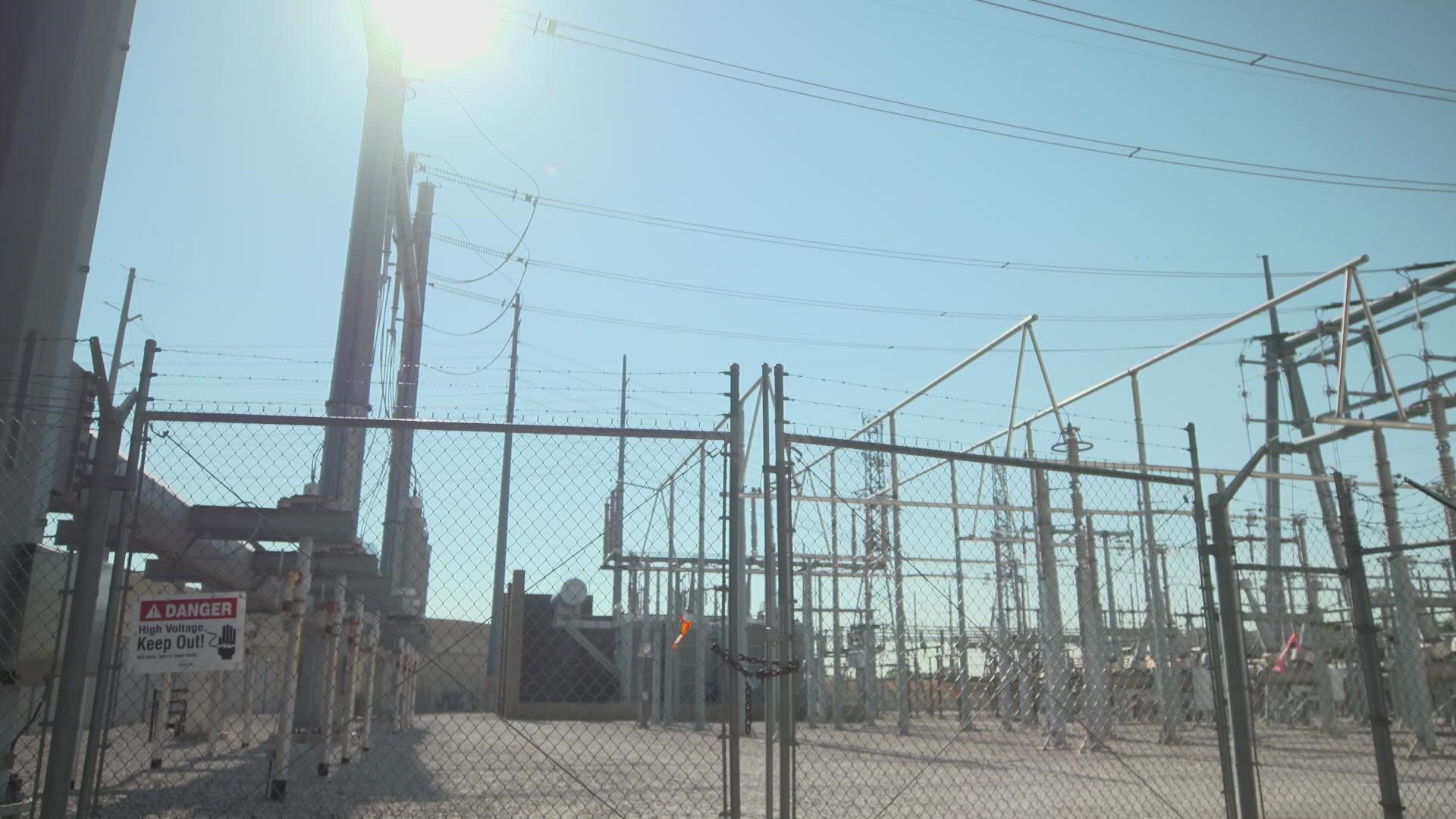DALLAS — The lights (and thankfully the A/C) stayed on in Texas last week. But as the state baked in triple digit temps, the electric grid operator pleaded with Texans on multiple days to hike up the thermostat and conserve power as much as possible, because the state was uncomfortably close to not having enough electricity to meet demand. And it could happen again in the week ahead, with forecasts showing another string of sweltering days.
But going into the summer, Gov. Greg Abbott touted the strength of the Texas electric grid. And he has said that state leaders did everything that needed to be done to fix the problems that led to deadly, widespread outages in February 2021 when the state didn’t have enough power to go around.
Beto O’ Rourke, the governor’s Democratic opponent in this year’s election, has made the fragile electricity situation in Texas a key pillar of his campaign, promising to fix it if he is elected in November.
O’Rourke says the approach, “Needs to be all of the above."
He is calling for more natural gas generation, combined with wind, solar, geothermal, and eventually hydrogen power sources. He also wants to connect the independent Texas electric grid to the national power grid so Texas can get an assist when electricity demand here surges; and so Texas can sell power to other states when we have more than enough.
Listen to this week's Y'all-itics here:
But Ed Hirs, Energy Fellow at the University of Houston, says connecting to the national grid could take years.
“It's certainly not as simple as hooking an extension cord into Louisiana," Hirs said.
He says one of the complications is that Texas would have to bring its grid up to standard.
“Our grid…is the weakest, so we would have to do an awful lot of work to try and convince our neighboring grids to let us in," Hirs said.
Hirs agrees that much more natural gas generation must be built in Texas. But he says that requires big structural changes to the way the state’s electric marketplace is set up.
Without big changes, he predicts a continued surge in the already much higher electricity rates Texas consumers are paying.
He also thinks we run the risk of more outages since tight supplies mean that the state’s aging electric plants are running overtime and are not able to be taken down for regular maintenance.
“We've had a bunch of power plants that are kind of teetering on the edge," Hirs said. "I think the odds of having interruptions increase each day that these plants are not well maintained.”

